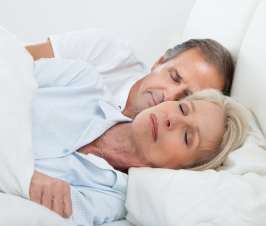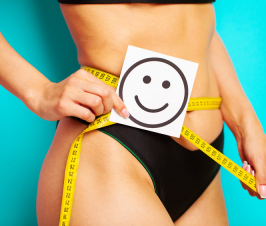Pharmaceutical Antidepressants: Epic Fail
A recent article I was glossing over reminded me of the dangers of using antidepressant medications. The article rehashed a 2015 study1 on the increased risk of suicide and attempted suicide from those being treated with pharmaceutical antidepressants, including tricyclics, serotonin reuptake inhibitors, and others. It is a very real risk, which is outlined as a “black box warning” on many of these medications. The fact of the matter, in most cases of depression, the use of these medications is completely unfounded, and even mainstream medicine is beginning to admit that they don’t even work that well.
It is becoming generally understood, and accepted that these pharmaceuticals should not be considered first-line for most depression, as even JAMA has stated that the “benefit of antidepressant medication compared with placebo increases with severity of depression symptoms and may be minimal or nonexistent, on average, in patients with mild or moderate symptoms.”2 Advocating a healthy diet, increased sleep, exercise and mindfulness practices, are all becoming more conventionally respected frontline treatments for depression and should certainly be exhausted before medication is even considered.
We all have bouts of depression
And sometimes those periods in our lives can be quite long, during which, many of the healthy habits and tools we’ve used and enjoyed during more active phases of our life get forgotten. It’s precisely these things which have the highest pay off for lifting us out of depression.
Mindfulness
Getting out of the cyclic pattern of thinking, and becoming aware of how our thoughts are influencing our emotions and actions is a perfect place to start. And since depression often has a lethargy component, mindfulness is perfect because you don’t even have to get off the couch. But you do have to turn off the TV. Sit for 5-10 minutes and concentrate on your breathing. Allow your thoughts to come into your mind, and acknowledge them, noticing what they are, and then allow them to exit your mind, as you return to concentrating on your breath. There is no goal in this practice; simply to let go of the expectation of “doing,” and exist in a state of “being.” As 10 minutes becomes easier and easier, adding other components to a mindfulness practice can be very helpful, such as affirmation, prayer, or visualizations.
Diet
When we are depressed, we tend to eat pretty poorly. This is because the dopamine which is released by our brain in response to things like cheese, sugar and fat makes us feel good – temporarily. It comforts us, even if it adds to our lethargy, fatigue and general “funk.” If dedicating time to preparing healthier meals is difficult due to the current lack of energy you’re experiencing, try intermittent fasting, where you only eat during a certain time of day – say from noon to 6 pm. The time you are not eating (not even a single chip), will allow your body to work through some of the less desirable foods you’ve been eating, and in a couple days you may find yourself able to prepare some healthier meals. Intermittent fasting is an excellent way to balance metabolism and increase energy, focus and creativity.
Sleep
You may think you’re resting all the time when you’re depressed. But are you? Often times depressed individuals confuse watching TV until 3 am with sleep, because they feel so drained of energy. However, the lack of sustained sleep, in bed, can establish a vicious cycle where we’re not sleeping and instead staying up all night in a semi-daze watching movies or playing video games. If it’s insomnia that is keeping you awake, this needs to be addressed, and perhaps a naturopath should be consulted.
Movement
Some say that movement is the greatest antidepressant of all. And it’s probably true. The thing is, it’s the very last thing you want to do when you’re depressed. However, when you start moving, often times it leads to greater energy, which can then perpetuate the moving. Now, having said this, there are other underlying causes for having low energy, which perhaps exercise won’t address, for instance, sleep. If you’re not sleeping, chances are exercise isn’t going to make you feel great – however, it may make you sleep better, then you’ll be able to exercise more. An underlying endocrine dysregulation may also cause fatigue, which may actually be negatively affected by exercise, such as a hypothyroid condition. This could also give you key insight into what may be causing your depression.
Sources:
- Coupland C, Hill T, Morriss R, et al. Antidepressant use and risk of suicide and attempted suicide or self harm in people aged 20 to 64: cohort study using a primary care database. BMJ.2015;350:h517. doi: 10.1136/bmj.h517.
- Fournier JC, DeRubeis RJ, Hollon SD, et al. Antidepressant Drug Effects and Depression SeverityA Patient-Level Meta-analysis. JAMA.2010;303(1):47-53. doi:10.1001/jama.2009.1943
 Node Smith, associate editor for NDNR, is a fifth year naturopathic medical student at NUNM, where he has been instrumental in maintaining a firm connection to the philosophy and heritage of naturopathic medicine amongst the next generation of docs. He helped found the first multi-generational experiential retreat, which brings elders, alumni, and students together for a weekend campout where naturopathic medicine and medical philosophy are experienced in nature. Three years ago he helped found the non-profit, Association for Naturopathic ReVitalization (ANR), for which he serves as the board chairman. ANR has a mission to inspire health practitioners to embody the naturopathic principles through experiential education. Node also has a firm belief that the next era of naturopathic medicine will see a resurgence of in-patient facilities which use fasting, earthing, hydrotherapy and homeopathy to bring people back from chronic diseases of modern living; he is involved in numerous conversations and projects to bring about this vision.
Node Smith, associate editor for NDNR, is a fifth year naturopathic medical student at NUNM, where he has been instrumental in maintaining a firm connection to the philosophy and heritage of naturopathic medicine amongst the next generation of docs. He helped found the first multi-generational experiential retreat, which brings elders, alumni, and students together for a weekend campout where naturopathic medicine and medical philosophy are experienced in nature. Three years ago he helped found the non-profit, Association for Naturopathic ReVitalization (ANR), for which he serves as the board chairman. ANR has a mission to inspire health practitioners to embody the naturopathic principles through experiential education. Node also has a firm belief that the next era of naturopathic medicine will see a resurgence of in-patient facilities which use fasting, earthing, hydrotherapy and homeopathy to bring people back from chronic diseases of modern living; he is involved in numerous conversations and projects to bring about this vision.

















